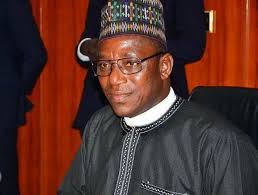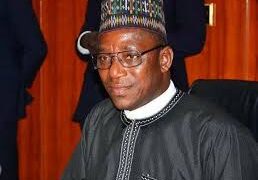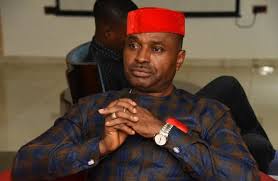Justice, nonetheless, arrives late, bruised and in blood when it does. But when it does speak clearly, it can rattle the impunity’s bones. That is exactly what happened on June 24, 2025, in a Nairobi court, when Justice E.C. Mwita decisively held that Nnamdi Kanu: the detained IPOB leader, had been illegally kidnapped and forcibly renditioned from Kenya to Nigeria in 2021.
It was a decision imbued with the weight of law and the weight of morality. The High Court in Kenya not only declared the clandestine operation by Kenyan and Nigerian agents to be immoral, but also awarded Kanu KSh10 million (about ₦120 million) in damages. The verdict rendered the government’s official statements of two countries asunder and upheld what IPOB and human rights groups have shouted for years: Kanu’s arrest was not legitimate extradition—it was a political assassination in the cover of diplomacy.
Kanu’s ordeal is not a shock to anybody who witnessed the gradual simmer of Biafran dissent in Nigeria. In June 2021, he went missing in Nairobi during the daytime. Days afterwards, he turned up in Abuja—bloodied, traumatized, and mute. No warrant from the court. No due process. Just naked bare power disguised as national security.
Now, the fig-leaf of law has been pulled away by the Kenyan High Court.
A Judgment That Roars.
Justice Mwita’s words cut through the diplomatic fog: “The government of Kenya trampled on the Constitution and Mr. Nnamdi Kanu’s rights and fundamental freedoms.” The ruling continued, identifying the incommunicado detention, denial of medication, and denial of due process as crimes against local and international law.
It’s unprecedented, almost unthinkable that an African court should hold a foreign state directly culpable for state-sponsored illegality. But that exactly is what this ruling did. In so doing, not only did it create a judicial precedent, but it also issued a warning shot to the implicit complicity that so frequently drives transnational repression across the continent.
IPOB Vindicated, but at what cost
As expected, IPOB retaliated with deafening support. The movement labeled the ruling a “judicial earthquake,” accusing Nairobi and Abuja of “state-sponsored international terrorism.” Its Language is aggressive, yet the sentiment crosses all civil rights voices: that this was not as much about Kanu—it was about the nefarious legitimization of extraordinary rendition, where borders are a mere formality and the law is circumvented for ease.
The ruling also put the limelight on the endless long hours of toil by Professor PLO Lumumba and the bravery of a judiciary that, for once, would not blink under pressure. It is a rare day when justice not only stands tall but cannot be politicized.
What This Means for Nigeria
The dimensions of this decision are enormous and agonizing to the Nigerian government. It puts Abuja’s ongoing effort to pursue Kanu on legal and ethical scrutiny. If the foundation on which he was brought back was unlawful, can any trial based on it be fair?
Additionally, Nigeria’s clamor to prosecute Kanu on charges of treason and terrorism now has the background of a court-confirmed human rights violation. The government will require more than theatre in the courtroom to persuade the international community that its pursuit of Kanu is not merely persecution by procedure.
And for the International Community?
The international implications are no less weighty. The ruling contributes to the further chapter in growing global attention around extraordinary rendition and state abuse. It solidifies the principle that sovereignty cannot be used as an impunity cloak, and that international human rights commitments are not optional—even for regional hegemony like Nigeria’s.
It also places pressure on diplomatic friends, like the United Kingdom (where Kanu has a citizenship), to re-evaluate their position. Remaining silent in the face of judicial certainty would be complicity by omission.
Final Thoughts
Nnamdi Kanu’s victory in court in Kenya is not a personal triumph. It is a legal milestone. It demolishes the illusion of unaccountability and reminds us all that even the mighty must, sometime or other, face the gavel.
Now, the Nigerian government is faced with a difficult question: can you try a man when taking him to trial has now been ruled illegal?
The world is watching. And this time, the quiet will not be heard.



































